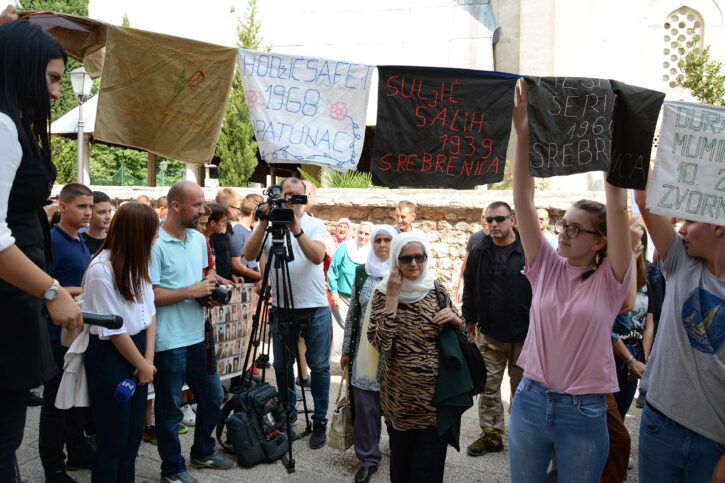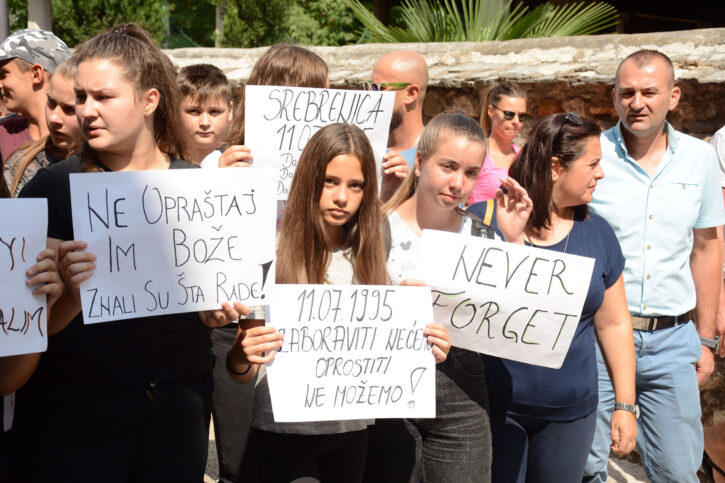
The Mothers of Srebrenica and the Museum Of War And Genocide Victims 1992-1995 have organised a march commemorative march through the southern city of Mostar for the victims of the Srebrenica genocide on Wednesday.
Numerous citizens joined the march as well, carrying banners and pillows embroidered with the names of the victims of the Srebrenica genocide and demanding their remains to be found and the truth about what happened in the eastern Bosnian town to be told.
On July 11, 1995, Bosnian Serb forces overran the eastern Bosnian enclave and rounded up the town’s Muslim Bosniaks, separated men from women and little children and systematically executed some 8,000 men and boys.
The bodies of the victims were buried in a large number of mass graves. New remains of the victims are found every year and buried on July 11 at a commemoration ceremony in Potocari, near Srebrenica.
The International Criminal Tribunal for the Former Yugoslavia (ICTY) and the International Court of Justice later ruled that the massacre was an act of genocide.
The head of the ‘Women of Srebrenica’ association, Hajra Catic, said she was touched by the great number of young people who arrived to express support.
“My son disappeared when he was 26 years old and I last saw him in Srebrenica on July 11, 1995, when he said that Srebrenica is turning into a large slaughterhouse,” Catic remembered.
“This is what I live with. I have still not found him and I’m afraid I will never live to see his grave,” she said.
“I know what it means for every family when the remains of their loved one is found and when their grave is erected,” Catic said, adding that she would even be happy if she would find one of her son’s fingers.
The Mostar march is a good indicator that the victims will never be forgotten, she said.
The head of Bosnia's Association of Prison Camp Inmates, Jasmin Meskovic, said the number of people who showed up at the event is “encouraging.”
“We should realise this activity in a different town every 11th of the month in the future and spread the truth about what happened in Srebrenica and what happened in Bosnia and Herzegovina,” he said.
“This story needs to be passed down to our children, as we are already old and tired, without any adequate support from institutions. We simply have an obligation to pass down our work to younger generations and to children who, fortunately, don’t remember the horrors of war,” Meskovic said.
The march was organised without any help from institutions, he stressed.









